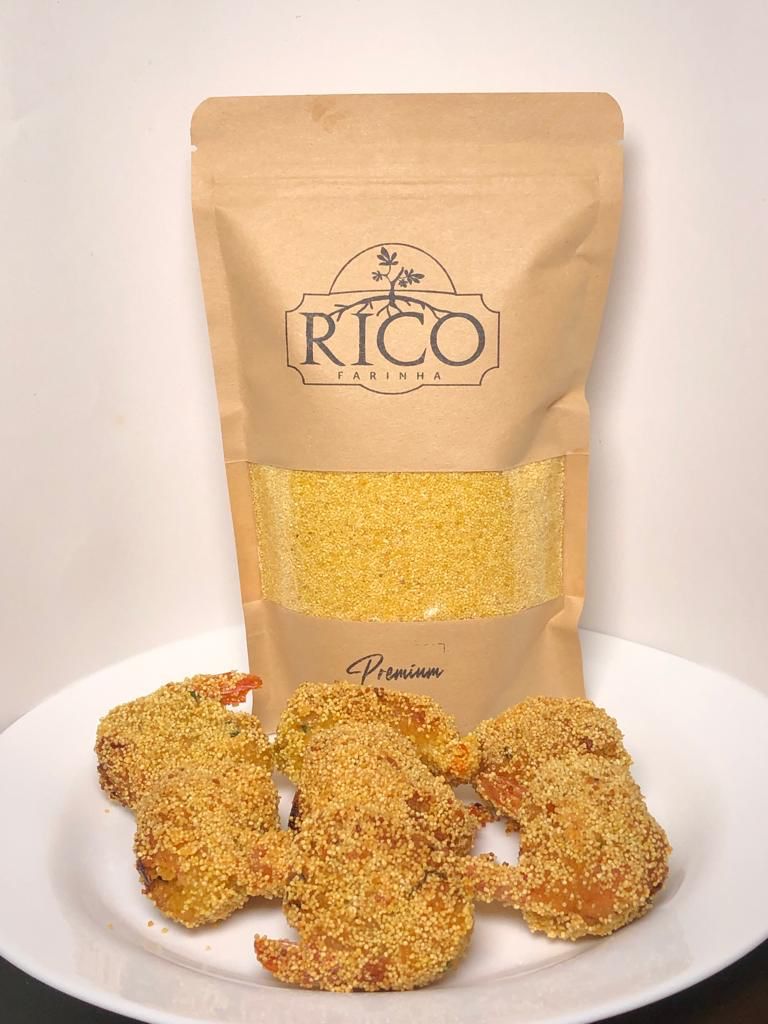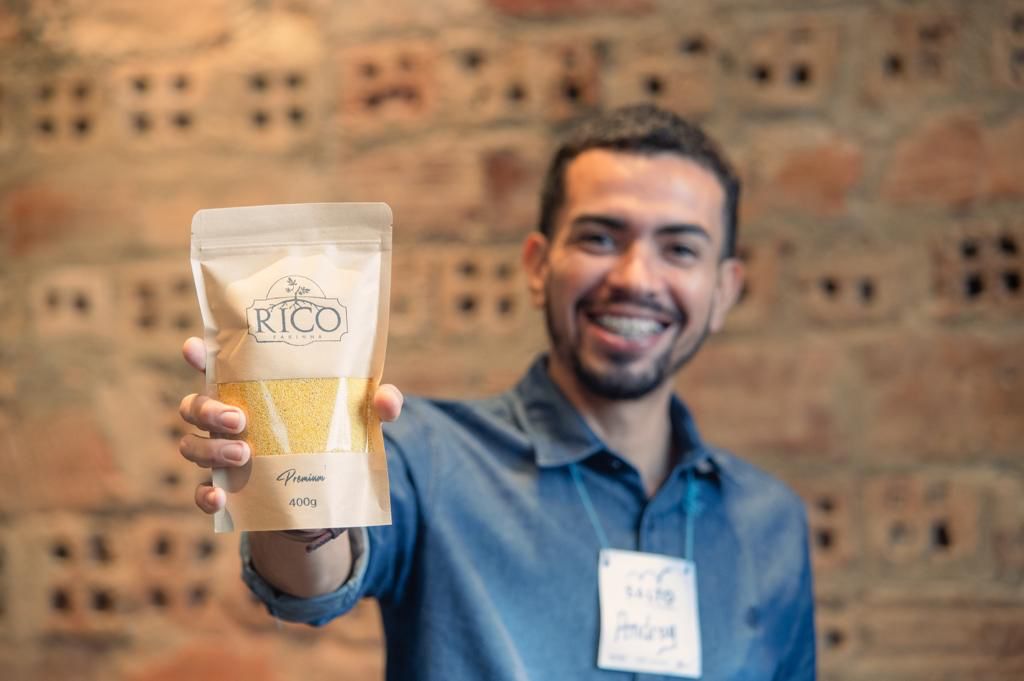Flour fills the plates of Amazonians and generates income for entrepreneurs
[ad_1]
Manaus (AM) — The saying: “Whoever eats jaraqui, doesn’t leave here”, supports how cuisine in Amazonas captivates anyone. It’s not just the fish that marks Amazonian gastronomy, the flour also gains an important place for residents and tourists, who can’t do without the complement in the dish. In addition to enriching the palate, food boosts the economy in the State.
Present in most meals and even in non-traditional combinations, the consumption of flour is part of the daily lives of Amazonians. Its relevance is so great that it is needed even by those people who no longer live in Manaus. Needy due to the lack of flour, Amazonian Caroline Soares, just over a year ago, moved with her family to the southern region of the country. In addition to the cultural difference, she needed to adapt her diet, as she does not have cheap access to flour.
“For a person who was born and raised in Amazonas and was used to eating flour at least twice a day, going without food is extremely difficult. I had to get used to not eating flour every day, which is very difficult for an Amazonian who eats flour for lunch and dinner, sometimes even with fruit, like tucumã and banana”,
vented.
The Amazonian describes that, as it is not a typical product from the region, the prices are high and can reach up to double the amount charged in Amazonas.
Entrepreneurs invest in flour
With the high demand and support from those visiting the North of Brazil, the flour market has become profitable for micro-entrepreneurs, especially riverside communities, based on the production knowledge of the indigenous population.
Among the main flour choices, one of the population’s favorites is the one known as “ovinha”, produced by fermented cassava. This type is commonly produced in communities in the municipality of Uarani, in the interior of Amazonas, close to the municipalities of Tefé and Alvarães.
Ricardo da Silva Nery, owner of Rico Farinha Uarini, combined his passion for eating flour with the opportunity to earn income and ventured into entrepreneurship. During the pandemic, he needed to reinvent himself to make money and saw the possibility of supporting himself by selling food.
Nery started to buy the product directly from a producer in Tefé and resold it to small markets and restaurants. Alongside his wife, who graduated in economics from the Federal University of Amazonas (Ufam), he became an Individual Microentrepreneur (Mei).
“It was necessary to add the brand name, expiration date and other information. Amid the Covid-19 pandemic, in 2020, I believed that that purpose was worth it and we opened the CNPJ as Mei, in addition to entering the world of entrepreneurship together with my wife, who graduated in economics from Ufam, which opened doors for scientific articles, events, fairs and conferences, bringing not only a product, but the entire history of many families that strengthen culture and agriculture in Amazonas”,
reported.

The enterprise received assistance from the Brazilian Micro and Small Business Support Service (Sebrae-AM), when it started to connect with the Association of Agroextractivist Producers of Flona de Tefé and Entorno (APAFE), having more than 480 members who produce Uarini flour , based on the geographical indication standards granted by the National Institute of Industrial Property (INPI), in 2019, for the regions of Alvarães, Maraã, Tefé and Uarini.
According to Ricardo Nery, only places indicated by the geographical indication can produce flour with the term “Uarini”, which, in addition to representing the name of the municipality, represents the quality of the product. The population tends to use the nomenclature linked to flour.
The enterprise’s production is guided by sustainability principles, in order to contribute to the United Nations (UN) 2030 Agenda.
“Rico aims to help sell the Tefé product and take our culture to the world, producing a sustainable product through the guidelines and specifications of the geographical indication booklet that produces clean flour, without harming the soil, adding value and giving more quality of life for farmers who work in flour mills planned and adapted with more technology and techniques to make work easier, guaranteeing a traditional, tasty and unique product”,
he stated.
Boosting the economy
Economist Denise Kassama linked the consumption of flour with family tradition passed down from generation to generation, translating into a true cultural heritage, in addition to boosting the economy.
“Flour plays an extremely important socioeconomic role for regional development and, effectively, brings economic power to regions far from the capital, from the farmer who grows cassava to the staff at the flour mill. It is a very rich chain, which is 100% likely to occur in Amazonas and generates income in the interior”,
explained the economist.
Despite its influence and consumption power, flour presents challenges for the development of production, especially when considering price instability in commerce.
“The challenges range from the cultivation that damages the soil with fires, the logistics from the field to the flour mill and the river transport that takes days to reach Manaus, as well as the devaluation of labor and the lack of information for producers, with low added value”,
points out Ricardo.
Rico Farinha Uarini seeks to participate in national events and business acceleration and development programs, seeking training and recognition to be able to be present in businesses in various regions of Brazil. “We are also targeting the international market, as we know how a simple food can take us back to our homeland for a moment,” she added.

The entrepreneur emphasized the power of cassava flour as an ancient food in the culture of Amazonas, providing nutrition to the population that has the habit of consuming different types of flour, especially in developing countries, such as Brazil.
“In Amazonas, Uarini flour strengthens local culture, as it is a unique food originating from Amazonas, in addition to being widely consumed in the region, regardless of the price, the public appreciates the quality, valid for all social classes. It is a food that needs to be better communicated and presented to the public, this is our role. We know that this trade can accelerate local economic growth and enable regional development, changing the lives of many families who live off agriculture”,
concluded.
Read more:
Uarini or ovinha? Team takes 30kg of flour to the World Cup in Qatar
Unusual products such as termite syrup and blood meal gain prominence in Manaus
More than 50 microentrepreneurs from Manaus participate in Feira do Paço this weekend
[ad_2]
Source link




:strip_icc()/s02.video.glbimg.com/x720/12519489.jpg)


